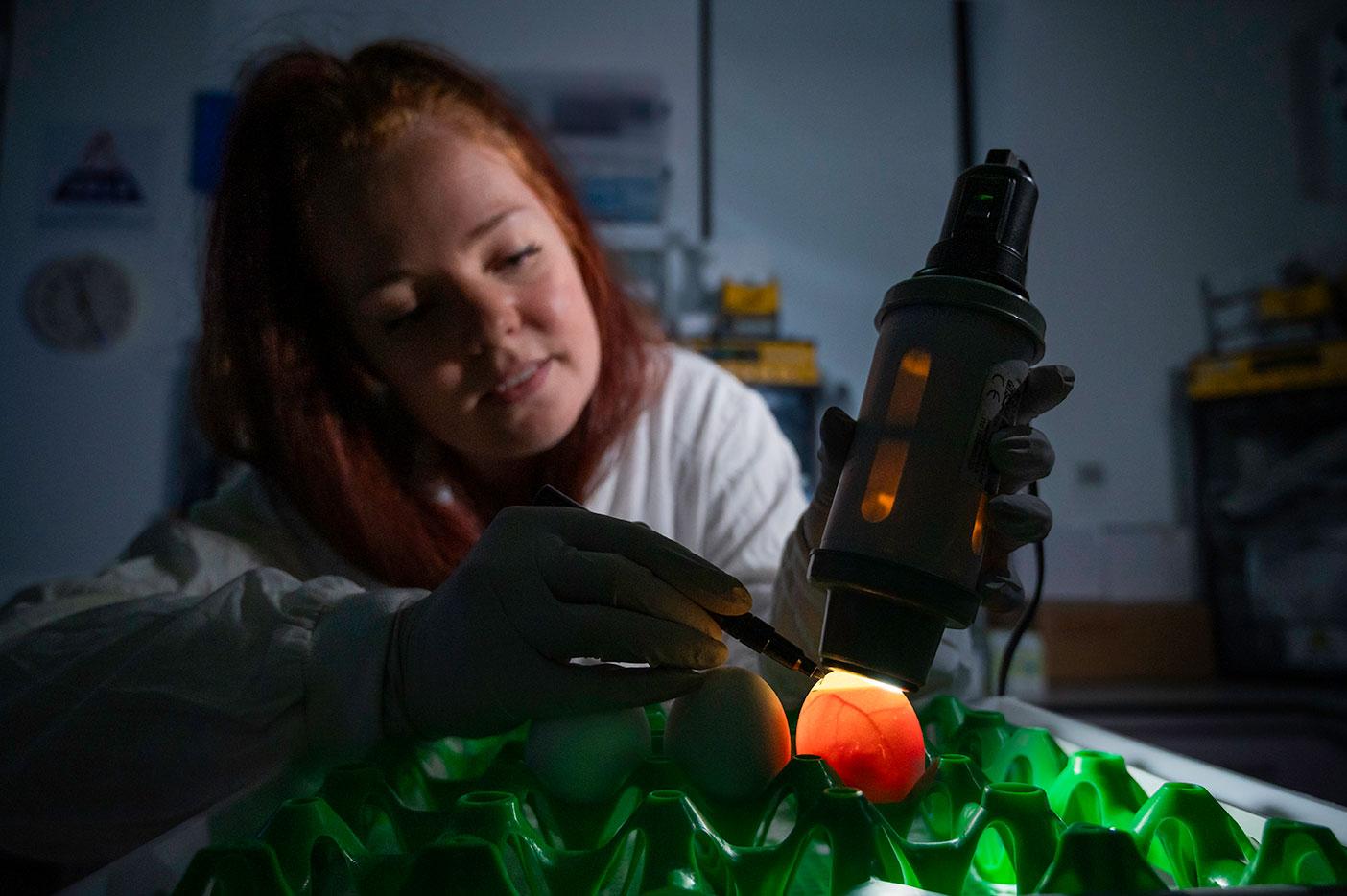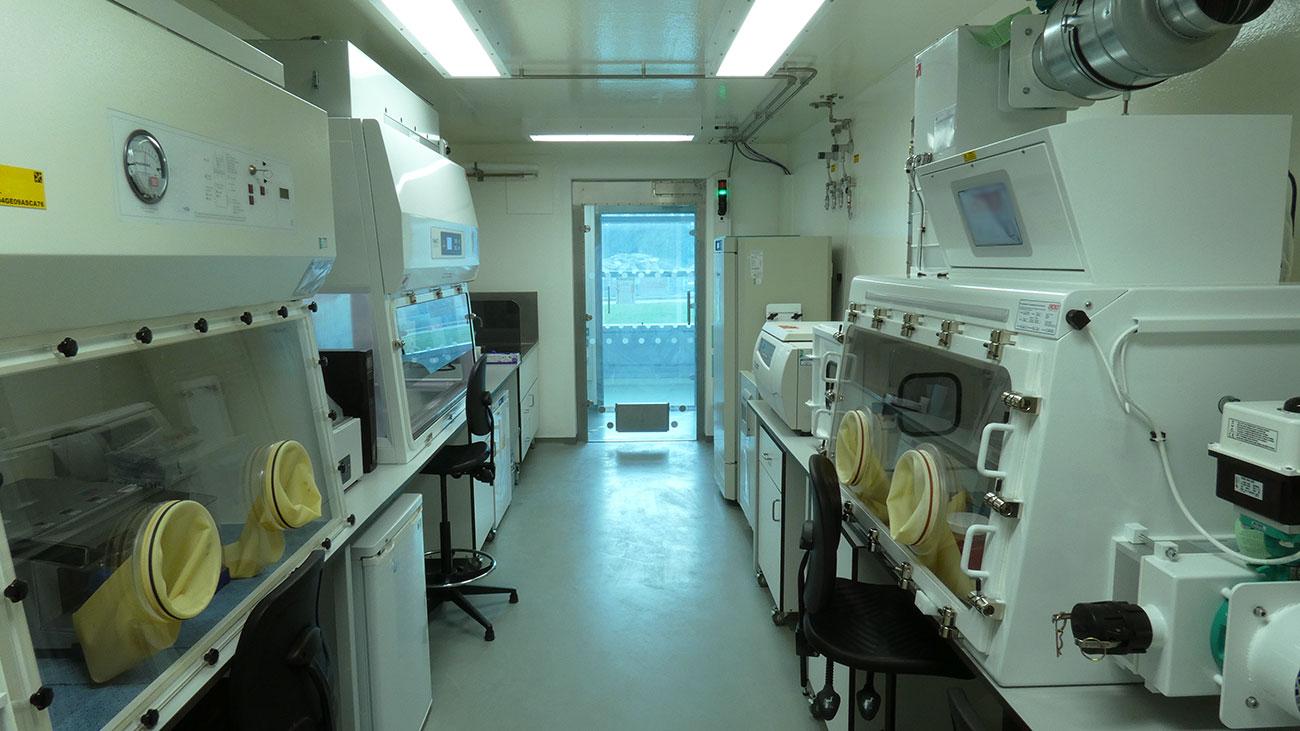Unique in the UK, The Plowright Building provides the ability to carry out internationally excellent research on viruses safely at the highest level of containment.
It is a Category 4 bio-containment facility designed to ensure that no virus can get out, and to prevent cross-contamination within the facility itself.
With three international reference labs for ten exotic viral diseases of livestock at its core, the pathogens studied within The Plowright Building include some of the most contagious viruses known, as well as economically significant viruses such as foot-and-mouth disease virus (FMDV), bluetongue virus (BTV), peste de petits ruminants virus (PPRV) and African swine fever virus (ASFV). Its infrastructure allows safe working at the highest national and international regulatory standards.
In addition to its core research, The Plowright Building also plays a crucial role in predicting which viruses are circulating globally and assessing their potential impact. This capability is essential for preparing and responding to outbreaks, ensuring rapid diagnostics can be deployed in the UK.
Innovative building design
The design team took the conventional box-inside-a-box design for containment and pulled it inside-out. Instead of the virus or the labs being buried in the center, the design team put people at the center.
The building includes a central light-filled atrium, with containment zones surrounding it. The curtain wall of the atrium defines a sealed containment boundary. A radical departure from traditional bunker-like Category 4 containment facilities, this new model is safer, enhances research productivity, and is exponentially more comfortable and pleasant for researchers and staff. It aligns with the worldwide trend towards multidisciplinary collaborative science.
Construction of the building was completed in early 2014, and after commissioning, validation, licensing, and occupation activities were successfully completed, scientific activity in the building began in early 2015.
The building was officially opened by Sir Vince Cable on 31 October 2014.



